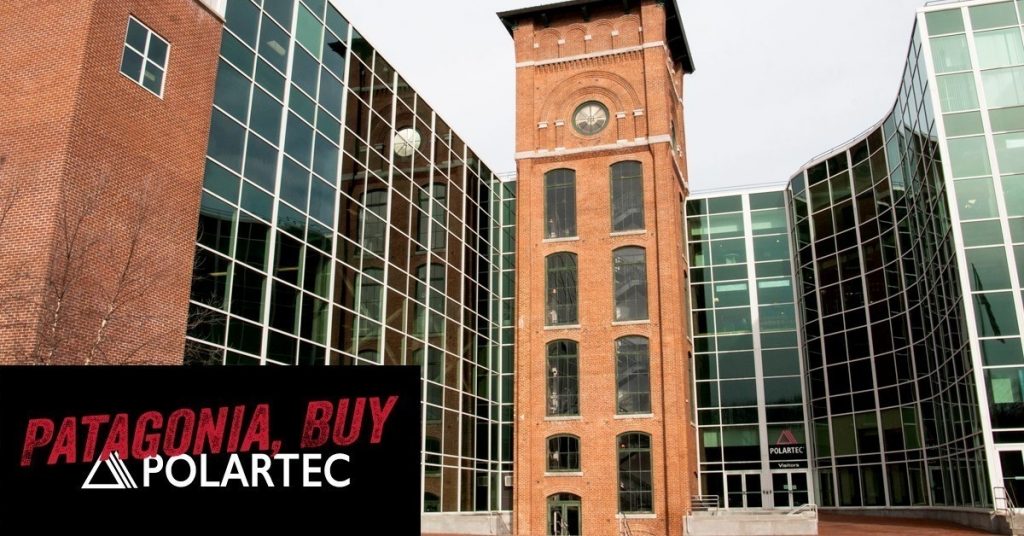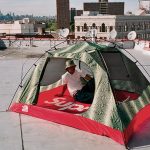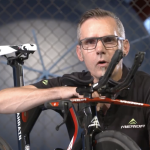Saving companies and American manufacturing jobs, particularly in the textile industry, is not for the faint of heart.
That’s been demonstrated in recent years by events at Polartec LLC, which has been pilloried by a union and the media since it announced last December its decision to relocate manufacturing operations from a plant straddling the Lawrence-Methuen border in Massachusetts to a smaller factory it acquired last September in Cleveland, Tenn.
The latest blast of criticism came last week after Polartec filed paperwork disclosing its plans to begin laying off workers in Massachusetts. UNITE Here, which represents most of those workers, responded last week by publishing an open letter to Patagonia CEO Rose Marcario urging the outdoor apparel company buy Polartec to save the 350 unionized jobs in Massachusetts.
“We write because we believe Patagonia, with its deep connections to Polartec and its innovative approach to finding business solutions to social and environmental problems, is in a position to turn this situation into something remarkable and inspiring,” reads the letter.
Patagonia, which uses Polartec fabric in more than 110 styles, declined to comment on UNITE Here’s letter June 10.
The current owner of Polartec, private-equity firm Versa Capital Management, which acquired the business out of bankruptcy in 2007 as the sole bidder, argues that it saved the company from going out of business back then.
“Any rational business person understands that Versa gave us a chance,” Polartec CEO Gary Smith said in his first press interview since December.
Based in Philadelphia, Versa specializes in distressed investment, or buying and turning around failing companies. It acquired Wet Seal last year and is currently liquidating the Sport Chalet retail chain as part of Chapter 11 restructuring of Vestis Retail LLC, which expects to exit U.S. bankruptcy court by August operating 60 Eastern Mountain Sports and 34 Bob’s Stores.
Versa announced last December that Polartec would begin shifting manufacturing from Massachusetts to a building in Tennessee it purchased from United Knitting, a Polartec supplier that began looking for a buyer after its owner perished in a 2013 plane crash.
Polartec began sourcing some stretch fabrics from the company in the last four years as it diversified beyond outdoor and into bicycling and other more athletic markets. While “scrappy,” United Knitting had been struggling since losing a program with a major athletic brand that shifted production to an offshore supplier. The size of United Knitting’s building, the familiarity of its workforce with Polartec products and its availability provided a unique opportunity for Polartec to right-size its domestic manufacturing footprint, Smith told SGB Executive.
“It was in an estate and no one in family wanted it,” Smith said of United Knitting. “What’s been lost in this story, is we are healthy enough, and that we are willing, to buy another facility and invest in that in 2016. We were willing to buy another operation that probably would have gone out of business if we had not bought it.”
Polartec never considered outsourcing manufacturing, as some of its competitors have done, because it wants to retain access to U.S. military contracts. Under the Berry Amendment, the Armed Forces are restricted to purchasing apparel cut and sewn domestically from U.S. made fabrics.
“This is a brand that does not just make fabrics,” Smith said. “We create fabrics and if you don’t make your product you can’t create product. It’s hard to outsource innovation. That’s a very inflammatory statement in some circles.”
The Tennessee plant is already producing Polartec fleece under supervision of employees from the company’s Massachusetts factory.
“Now we can offer a one-stop shop to cycling customers from the skin out,” Smith said .
In recent years, Polartec has sought to differentiate itself by developing breathable insulation, such as Alpha, which was originally developed for U.S. Special Forces who needed more advanced insulating material in the combat uniforms. For example, Polartec recently developed an Alpha product for use in a cycling vest by Rapha that sold out in two weeks, Smith said.
Polartec plans to invest in print technology that will enable the Tennessee factory to apply abrasion resistant surfaces on fabrics for applications such as rock climbing.
In his interview with SGB Executive, Smith reviewed the sequence of events and thought process that led to Polartec’s decision and which he had laid out in a nearly 1,600-word letter to Polartec employees in January.
The most salient of those include:
- Polartec would have been liquidated in bankruptcy court in 2007 had Versa not shown up as the only bidder for its assets in what was its third bankruptcy since 1983 and second since 2001. Although Polartec’s assets had already been “bagged and tagged” for a liquidation sale, Versa opted to buy the company as a going concern.
- Polartec has never used more than 25 percent of the capacity of the Massachusetts plant since it opened due to both its size and configuration. “We’ve got a four-car garage, but we only have one car,” Smith said. “It was built to do huge amounts of double-faced fabric that was by then being made in China.”
- The Lawrence plant is saddled with high energy costs due to New England’s tight energy supplies and regulatory environment. Polartec has been unable to secure a permit needed to burn oil in a generator on the site even though it’s equipped with scrubber, Smith said.
- While Polartec decreased fabric production in Asia and produced two thirds of its total output in the United States in 2015 in an effort to prop up the Lawrence mill, less than 15 percent of its U.S. made fabric was actually cut and sewn into garments domestically. The rest was shipped to customer garment manufacturing locations around the world.
- Adding to these structural problems, in recent years has been the fall of the euro against the dollar and rising competition from Central American fabric producers.
Polartec had long delayed the decision because of all the emotions tied up in the Lawrence plant, which Malden Mills built to replace a factory that burned to the ground in 2005. Malden Mills owner Aaron Feuerstein was praised on CBS 60 Minutes for opting to pay the factory’s employees while he rebuilt the plant. However, by the time it opened, many of Malden’s customers had shifted their business offshore. In 2007, for the third time, the company filed bankruptcy.
While most private equity funds typically try to sell their portfolio companies within seven years, Smith said the costs of running the Lawrence plant discouraged potential investors.
“Now this will be a business that will be attractive to a natural owner,” he said. “Every potential buyer said we would buy it if not for the plant.”
Based on discussion with state economic development officials, Smith said he is increasingly optimistic Polartec will find a buyer for the Lawrence plant this year. While the building does not suit Polartec, its wet floors and on-site water treatment plant make it an ideal site for brewers and other manufactures whose products are expensive to ship and consumed locally. Ultimately, he believes it could be put to use employing more people, as is the case with other surplus space Polartec has sold in the area over the years.
If the price is right, Polartec could even emerge from a sale debt-free, Smith said.
UNITE Here, meanwhile, has yet to hear back from Patagonia, according to Ethan Snow, chief of staff and policy director the union’s New England Joint Board. As of noon June 10, Patagonia had also not responded to queries sent June 8 by SGB Executive.
“Their history has been one of social consciousness and every day, if you are on their email list, you get a call to action to support various causes, so we see no better entity to help us,” Snow said.
Photo courtesy UNITE Here!
















